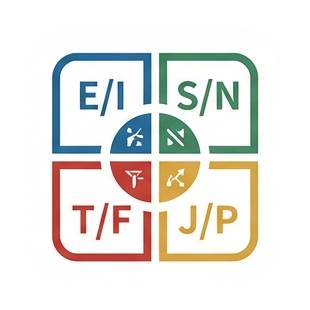ESFJ personality type, also known as the Consul, is one of the most common personality types in the world. People with this personality type are social butterflies who thrive on connecting with others and making them happy. They are driven by their emotions and their sense of duty towards others, which makes them exceptional caregivers, teachers, managers, and team players. However, there are also some downsides to being an ESFJ, which we will explore in this article.
优点 (Advantages)
1. 社交能力强 (Strong Social Skills)
ESFJs are excellent communicators who possess strong social skills. They enjoy meeting new people, building relationships, and connecting with others on a personal level. They can adapt to any social situation with ease and make friends quickly. This makes them ideal for jobs that require interpersonal skills, such as sales, customer service, human resources, and public relations.
2. 关注他人需求 (Attentive to Others' Needs)
ESFJs are compassionate and caring individuals who are deeply concerned about the well-being of others. They have a strong sense of duty towards their family, friends, and colleagues, and are always ready to lend a helping hand when needed. They excel in positions where they can make a difference in people's lives, such as counseling, nursing, teaching, and social work.
3. 团队合作精神 (Great Team Players)
ESFJs thrive in collaborative environments where they can share their ideas and support their colleagues. They are team players who place high value on harmony and cooperation. They are great at resolving conflicts, compromising, and finding solutions that benefit everyone. This makes them ideal for jobs that require teamwork, such as project management, event planning, and community organizing.
缺点 (Disadvantages)
1. 容易过度情绪化 (Prone to Overreacting)
ESFJs are highly emotional people who tend to overreact to stress and conflict. They can become overly sensitive, defensive, and reactive when their feelings are hurt or their needs are not met. This can lead to misunderstandings and conflicts in the workplace, particularly when dealing with difficult colleagues or clients.
2. 过度关注他人评价 (Excessive Focus on Approval)
ESFJs have a strong need for social approval and validation. They care deeply about what others think of them and strive to meet the expectations of their peers and superiors. This can lead to a tendency to conform to social norms and follow hierarchical structures, even when it goes against their own values or intuition. It can also lead to burnout and exhaustion from constantly trying to please everyone.
3. 缺乏自我肯定 (Lack of Self-Affirmation)
ESFJs sometimes struggle with low self-esteem and self-doubt. They may undervalue their own strengths and abilities and rely too much on external validation. This can hold them back from pursuing their own goals, taking risks, or asserting themselves in the workplace. It can also lead to a lack of assertiveness and boundary-setting, which can cause them to be taken advantage of by others.
(Conclusion)
In conclusion, ESFJ personality type has its unique advantages and downsides. While some of the strengths of ESFJs include their strong social skills, focus on others' needs, and team spirit, their weaknesses may involve being prone to overreacting, excessively focusing on approval, and lacking self-affirmation. By understanding these traits, ESFJs can harness their strengths and work on overcoming their weaknesses to achieve success in the workplace and in their personal lives.








